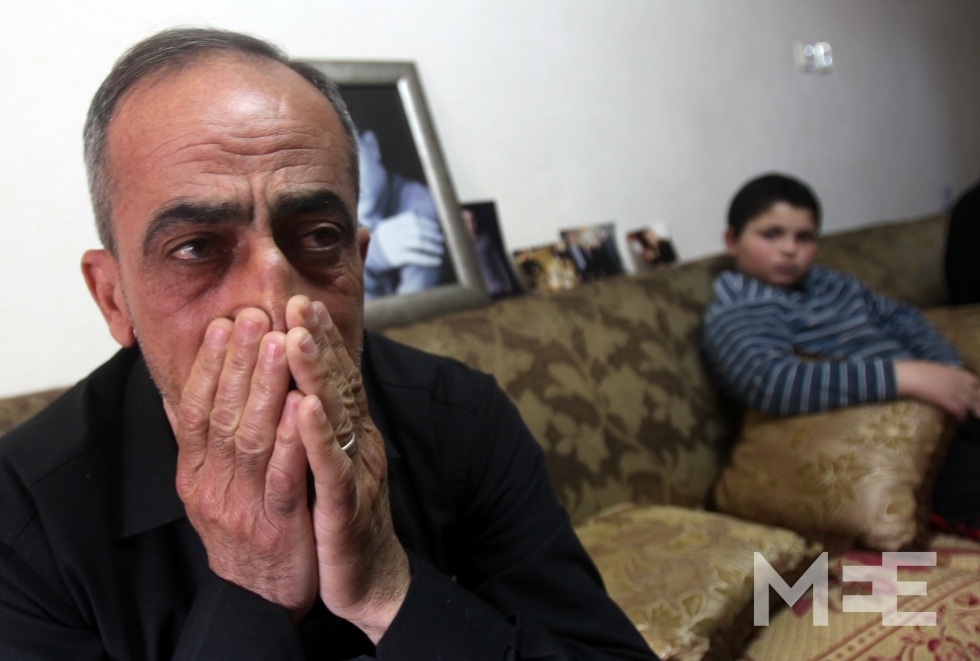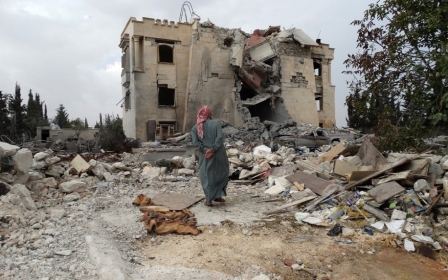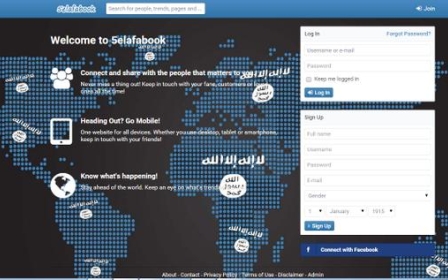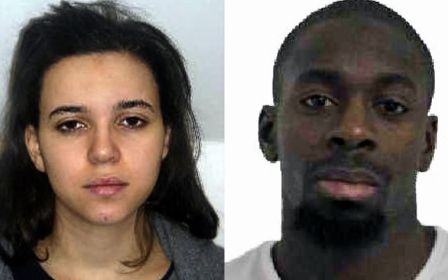East Jerusalem family mourns teenage runaway killed by IS

EAST JERUSALEM - In a flat in the Israeli settlement of Neve Yaakov, the Musallam family are gathered for their Friday meal. Friends and family have brought food, and the main room, though darkened and quiet, is crowded.
This, however, is not a normal Friday. Journalists have been visiting the house all week, and photographs of Muhammed, their 19-year-old son, are stuck on every wall and cabinet. When his parents Sayed and Hind talk about him, they periodically break down in tears.
Muhammed was killed by the Islamic State (IS) this week. The news – as in the case of so many IS victims – came in the form of a gruesome video, circulated around the world to maximise its shocking propaganda video.
In it, 19-year-old Muhammed is shown kneeling in an orange jumpsuit in front of two IS members, one of whom is a child who appears no older than twelve. The child then kills Mohammed with a single shot to the head, before shooting him again several times in his body.
“I asked my son Ahmad to show me the film,” Sayed told Middle East Eye as he recalled the day he discovered his son had been killed.
“He started crying and said, ‘I cannot show you’. He told me that if he was to show me the video, he would have to call an ambulance to be ready for me and my wife.”
Sayed will not watch the video, but he’s familiar with the claims the 13-minute clip makes. In the film, Muhammed says he was recruited by Mossad, Israel’s intelligence agency, to spy on the Islamic State.
The accusations mirror an article titled “Interview with a spy working for the Israeli Mossad”, published in IS’s smartly-produced magazine Dabiq. Presented as a question-and-answer, the article says Muhammed claimed that his father and brother encouraged him to work for Israel, and even blames them for his death.
Fervent denials
It’s a claim both the Musallam family and the Israeli security services fervently deny. A spokesman for Israel’s Shin Bet security agency has told AFP that Muhammed left on his “own initiative” while his father says IS smeared him as a spy to destroy his reputation when he tried to flee the militant group.
“My son would never work for Mossad,” Hind Musallam, Muhammed’s mother, told MEE. “Do you think, if he worked for Mossad, I would be a cleaner, that his father would be a bus driver?
“The Israelis don’t pick just anyone to be a spy, and definitely not a child with no training, who hadn’t even been to university.”
If the story of Muhammed’s recruitment was fabricated by IS, it would not be surprising. Forced confessions and statements are a frequently used tactic in the group’s propaganda, which relies on cinematic techniques and graphic violence to suggest it has power over its enemies. Western states are a particular target of this strategic posturing: in the video that shows his death, Muhammed’s killers, who are believed to be French citizens, make a direct threat to the safety of Jews in France.
And for Musallam’s family, the last four months have been defined by the horror and fear that IS has developed into an art form.
According to Sayed Musallam, Muhammed left in the middle of October last year, telling his family that he was taking part in a course in the north of Israel. When Sayed first noticed his son’s phone was off, he said, he wasn’t worried. After five days, however, he became seriously concerned.
Following Muhammed's trail
As the family being investigating, he said, their concern began to grow. First Muhammed’s brother Ahmad went to where the course was supposedly being held, and was told that it had never existed. Then, when the family discovered Muhammed’s passport was missing, they approached the police for help. They were told he had left for Turkey. Within five days, Ahmad received a message from his brother.
“He said, ‘Tell mother and father not to be angry with me, I’m now with Daesh in Syria and Iraq. I am going to become a jihadist’,” Sayed recalled. A few weeks later, Muhammed spoke to his family on Skype and sent photographs of himself posing with guns in the clothing of a fighter.
“There was nothing I could do about it, I couldn’t change anything. When he was speaking to me, he was looking down. I said: ‘Raise your head, I’m not angry with you. You have chosen this path’,” Sayed told MEE. He described his son as a normal 19-year-old, who before he left for Syria had finished his tawjihi – the examination Palestinian students take before university - and had begun studying mechanical engineering.
It was only a few months after his departure from Israel that Muhammed’s relationship with IS appeared to turn sour. On learning that his parents were sick, his family said, he decided to return home, asking for $200 to be wired through Egypt to help.
The money made it to Raqqa, but Sayed did not hear from his son again. As his father waited for months for his son to call from Turkey, Muhammed was being held in IS prisons. Rather than news of his safe passage, Sayed received a trickle of ominous hints. First, a man told him he had seen Muhammed in an IS jail; shortly after, in mid-February, he heard on the news that IS had caught a 19-year-old named Sayed Musallam who had been spying for Mossad.
The claim was a macabre misreporting of his son’s fate.
“That day, I was driving my bus on its usual route. All the way, I was thinking about the news and what it could mean. When I got the Central Bus Station, I said to my manager that I couldn’t continue, I couldn’t drive.
“The bus company knew what had happened,” Sayed continued. “The manager made me sit down and gave me a glass of water. Then he showed me a picture of Muhammed on his phone. I saw the picture and started crying. I could see he was wearing orange clothes. And I knew these are the clothes of the people that are going to be killed.”
A month later, the video of Muhammed’s death was released.
Recruitment risk
As his family gathered at home on Friday, photographs of Muhammed were everywhere, showing an ordinary teenager on holiday and with friends. His parents, visibly in shock, say that since Muhammed’s disappearance, they have had no support from anyone in Israeli institutions.
In recent weeks Knesset Member Ahmad Tibi has been one of few voices addressing young people at risk of IS recruitment, urging them not to join the group. “This group distorts the Islamic religion, whose members did and do more damage to Islam than Islamophobes in the West,” Tibi told Jerusalem Post last month. It’s a call the Musallam family echoed on Friday.
“I wouldn’t allow him to go with Daesh and I wouldn’t allow him to go with Mossad,” Muhammed’s mother Hind told MEE. “They told him that there would be beautiful girls, nice houses and plenty of money in the Islamic state. But he found only war.
“Before he left, he was talking a lot on the mobile, going out to a car and talking to people in the car for two, three hours. I thought he was talking to a girlfriend. But now we know he was not.”
“I ask all families to take care about who their children speak to, about what they see on the internet,” Muhammed’s father said.
“I have hard words for Abu Bakr al-Baghdadi,” he continued. “Muhammed may be dead for him, but he is alive in our hearts, and in the hearts of everyone who knew him. He did not, and will not, belong to any organisation.”
Middle East Eye propose une couverture et une analyse indépendantes et incomparables du Moyen-Orient, de l’Afrique du Nord et d’autres régions du monde. Pour en savoir plus sur la reprise de ce contenu et les frais qui s’appliquent, veuillez remplir ce formulaire [en anglais]. Pour en savoir plus sur MEE, cliquez ici [en anglais].




